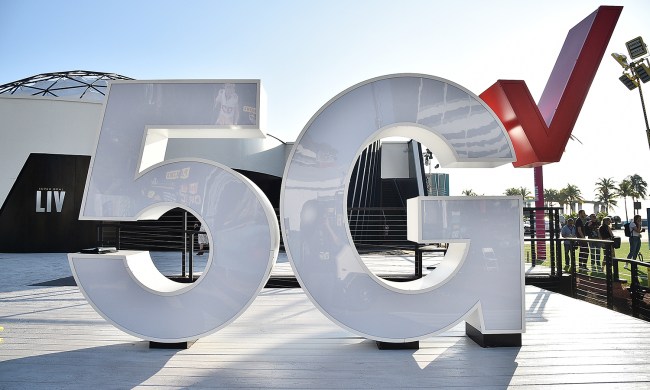Volvo announced it will work with China Unicom to bring 5G connectivity to its cars. The two companies plan to take advantage of ultra-quick connection speeds to improve vehicle-to-everything (V2X) communication technologies, which could ultimately make commuting safer, more convenient, and less stressful.
5G’s advantages are well known. Already available in a handful of American cities, the next-generation mobile broadband network promises drastically quicker upload and download speeds, and less latency. Volvo and China Unicom formed an alliance to research, develop, and test ways motorists can benefit from it on a daily basis.
The collaboration is at the embryonic stage, so neither party is ready to announce what’s next, but they’ve identified several ways 5G could improve your commute. By talking to the infrastructure, the car could detect when there’s a traffic jam or construction on a given route and slow down ahead of time, or take a detour. It could also help drivers find a parking spot by analyzing footage from traffic cameras, and communicate with traffic lights.
The technology developed through the partnership will reach showrooms in the next-generation Volvo products based on the modular SPA2 platform. It’s due out in 2021 under the third-generation XC90, though it’s too early to tell whether 5G will be available at launch, or if the feature will appear later in the production run. Other models (including replacements for the V90 Cross Country and the XC60) will also be built on the SPA2 architecture.

The announcement puts a big focus on the Chinese market, which makes sense; Volvo is owned by China-based Geely, and China Telecom is one of the nation’s largest carriers. 5G isn’t bound by borders, so technology developed in and for China could appear in cars made for the United States or Europe sooner or later.
Volvo isn’t alone in its quest to weave 5G directly into its electrical systems. Rival BMW traveled to CES 2020 to announce a similar partnership with Samsung. Its first 5G-compatible car, the production version of the iNext concept car, will use a built-in SIM card so motorists will have access to the technology even if they’re not carrying a 5G-compatible phone. The electric, semi-autonomous SUV is expected to reach showrooms halfway through 2021.



